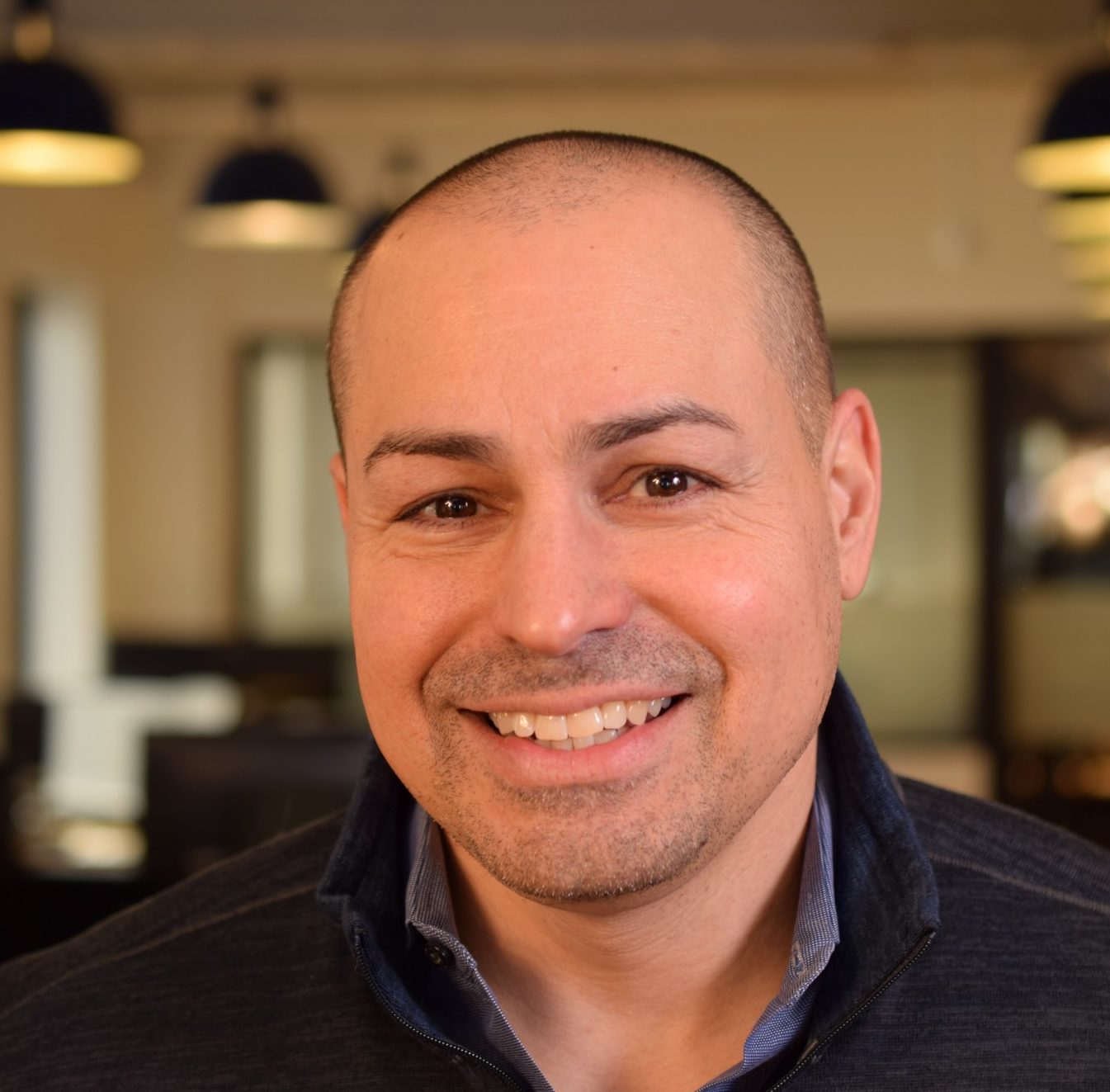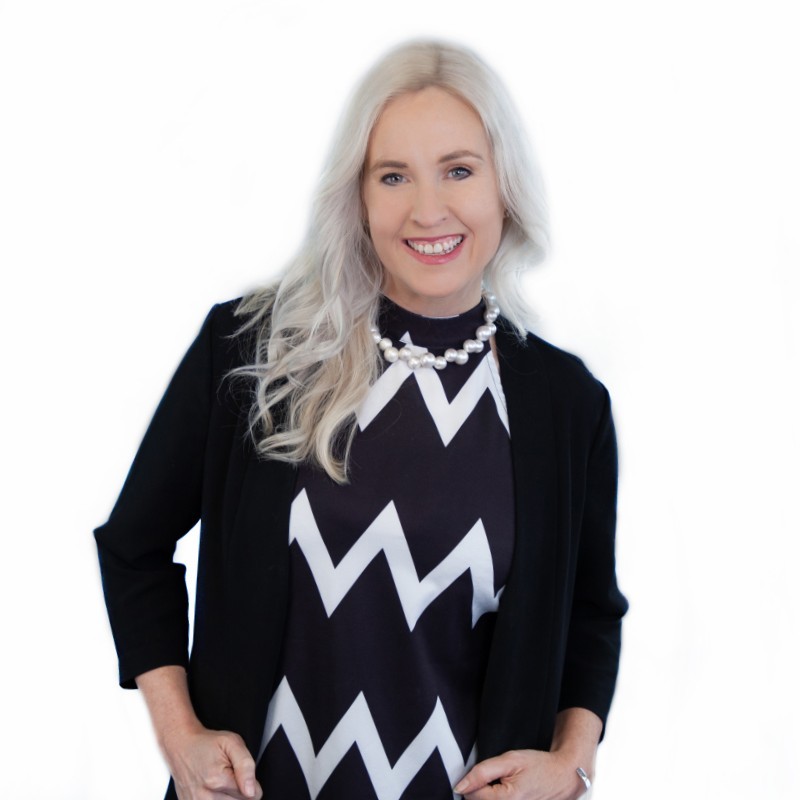Kristen Nunery isn’t impulsive, but she does make decisions quickly.
myCOI was one of the first to transition to remote work ahead of orders from the government. When employees showed signs of burnout, she implemented an optional four-day workweek policy.
And she also decided to jump in an RV and drive around the US during the pandemic instead of just working from her home.
So what makes it possible for a leader to be so quickly decisive?
Essential ingredients for quick action
Kristen gave us several ideas for how you make quick pivots.
First, you need to have a lot of trust in each other. Without trust, people start to second guess and drag their feet on issues. There needs to be a high level of confidence in everyone.
Second, you need to have stated, discussed, and reviewed values. Kristen’s team had already set a precedent that they would act in the best interest of their employees and it was one of their core values. So a decision to keep everyone home was quite easy to make.
Third, you have to have the right data. Many of the decisions Kristen and the team made came as a result of having accurate and quick data from clients. myCOI uses Emplify as a part of its digital workplace, which alerted them quickly about the coming burnout issues.
Vulnerability in the midst of chaos
Kristen isn’t an open person by nature, but especially in this season (and because she’s on the road), she finds it even more important to be vulnerable and transparent with her team. She shares not only the good, but also the bad.
myCOI has increased the amount of communication and collaboration to keep everyone informed.
They’ve also found ways to introduce fun into their communication. They celebrate things more publicly now and do fireside chats where employees feel safe to ask any question they want.
Kristen is a great example of a leader who is eager to challenge all of her assumptions, listen to team members, and step into the unknown if it means doing what is best for her team.
Links
Today, our guest is Kristen Nunery. She is the CEO of myCOI. Hi, Kristen. How are you doing today?
I’m doing really well. How are you today?
I’m doing excellent. I’m so excited to speak with you because you got a fun story to share and a lot of depth to what’s going on. I want you just to give our audience a little bit of an introduction about who you are and even where you are right now.
I am founder and CEO of myCOI and we are a company that help protect businesses. We help protect them from the disruptive impacts that can come from an insurance claim. And more specifically, just making sure all their vendors and contractors and suppliers have the insurance they need so that they’re protected when accidents happen because that is just part of life.
As we all are keenly aware of, things happen that you didn’t plan for.
Yeah, I know that one all too well today I have to say. You asked where am I today and I made the decision a couple months ago after working from home and sitting in my dining room table for all too long every single day and just reached a place of realizing, you know what? I’ve been encouraging the team to look for opportunity in the situation of the pandemic we’ve been living and find the positives within it and focus on themselves and improve themselves and continue to grow and I was sitting there and I just had a light bulb moment. I have always wanted to travel the US in an RV. It’s something I started anticipated doing some day down the road when I’m retired and just enjoying life. And I realized, you know what? If I’m working from home right now, why can’t I be working from the road? Why can’t I make both of these things happen and actually do this now instead of waiting till down the road to take this trip? So I am an RV owner now and I’m on the road. And today I am in Eugene, Oregon. Not anticipated, did not plan to be in this city at all, but I had an RV issue come up a couple days ago. And so I’m headed to a dealership to get that repaired today so I can get back on the road.
But it’s great. I’m so glad you took this opportunity. It’s inspiring for the rest of us, even though I’m glad I’m not with you right now, not in your shoes, but it is fun to travel along and hear about your journeys and all this. So it’s great that you’re doing it.
Yeah, it’s been a lot of fun. It’s been a great growth opportunity in a lot of ways, too.
Excellent. What I want to cover here is when I actually interacted with your head of marketing and we were talking about some things that your company has done. And from the people that I interact with from your company, they really were raving about how fast you’ve been able to make decisions and pivot in the midst of everything that’s going on. So when it comes to making the switch to working from home, when it comes to the switch to offering more flexibility for people to work in places and times that work for them, it seemed to me that you were making decisions very quickly. So I wanted to ask you, what kind of foundation allows a leader to shift so quickly in this kind of environment?
Yeah, that’s a really good question. We have made a lot of moves very quickly in this and I think, as a leader, in this kind of situation where, in many ways, our worlds have just flipped upside down, we have to be able to very quickly make decisions and analyze things and pivot and move quickly to be able to make sure we can navigate through challenging times like this. Reflecting on what led to that, or how we’ve been able to do that successfully, I think, first and foremost just for myself understanding my approach to decision making, and recognizing what that process for me what that looks like, and making sure that I’ve given myself that opportunity. I personally am somebody who needs a little bit of space and quiet time to think through things. And then I want to talk to mentors to make decisions. So when the pandemic hit, it very quickly get myself that opportunity to do that and compile my own thoughts, to feel confident making the decision to move to work from home. But in addition to that, I think what’s critical is the support of the leadership team and the whole team. And I think it’s important that the collective group has the ability to be flexible, the ability to be adaptable, the ability to be willing to make adjustments and make change and make that happen quickly. And they’ve got to have trust and confidence in the whys behind those decisions. So for us, and for me, as a leader, we’re really focused on our team, we’re really focused on building and growing and helping to develop everybody, our team as individuals, and collectively as a team. And so, one of the things that is really foundational for us is putting our team first and making decisions that put people first. So when the pandemic hit, it was crazy. It was like move, move, move, move, move. I was actually home sick one day, which was enough to kind of be able to think about things, not from the pandemic, thankfully. But I was having the conversations I wanted to have. The next day, I was back in the office and I pulled in the leadership team and said, Hey, guys, this was before we had any confirmed cases in Indiana, where we are, but I recognized it was coming. And so we met as a leadership group and said, Hey, guys, I think this is real. I think this is what could be happening in front of us. And let’s talk through this. What are our options? And literally that day, we put together a plan to test a work from home environment. And about an hour after that meeting, I pulled the entire team together and said, Hey, guys, here’s what we’re doing. Here’s why. And all of our why was to protect our team and keep them safe, keep their families safe. We felt blessed we had the ability to be effective working from home. And that was a wonderful benefit for us. And so, it almost made it a no brainer because we wanted to protect our team and we wanted to keep them safe. So the next day we tested it, and we sent everybody home, we made sure equipment was working, we figured out communication outlets, we figured out just how this would work. And we came back. We had one day to assess how everything was going, what that looked like before the first case was confirmed in Indiana. And that was a Friday. And when that happened, we very quickly said, Hey, we’re going home. So we didn’t come back the next week, and we’ve been working from home since. So all that is just to say that the leadership team and the whole team was very supportive of moving quickly. They put a lot of belief and trust and faith in why we were making the decisions we were, why I personally felt like we needed to move quickly. I think we were one of the first companies in Indiana to move to work from home. And so it was before the theme of it, so it was a little bit of a surprise in a lot of ways, a lot of people still were trying to figure out this whole pandemic thing so. But at the end of the day, because it was a decision that was to put our team first and the health and the safety of our team first, it was supported and everybody was willing to dive in and do whatever it takes to make it happen. So I just think that trust and confidence in the lens in which you’re making decisions is really important as a leader.
It sounds like there’s so many elements that go into this ability to make the quick decision because you have to be very clear on your values right from the start that, hey, we’re going to make the decision that it’s going to keep people safe. You have to have a leader who’s willing to move quickly, but you also have to be surrounded by other people who are also agreeing to that and are willing to move fast themselves. And I think there’s elements of, which I think is important, no matter where we’re going in the future, that you have to have a healthy fear of, we don’t know what’s coming next. We’re not sure. We can’t be positive. But we’re positive that this is the best we can do right now. This is the best decision we can make. So to create that atmosphere and that foundation, that’s not something that can happen in a day. That’s something you’ve been working on for a long time, I assume.
Yeah, you’re absolutely right on that. It is the foundation that allows you to make things happen, make a move in it, takes a lot of time, a lot of energy, a lot of focus, and very dedicated effort to build that to be able to be in a place to make decisions with a lot of unknowns the way we’ve been able to.
So I want to talk to you a little bit about as someone who’s sitting in the leader seat when all this is going on, you’ve expressed the idea that vulnerability and transparency is really important. So I want you to share with us about how becoming more digital has actually encouraged you to be even more vulnerable and transparent than you were even before, both on a personal level and as a leader of an entire organization.
Yeah, really great question. That’s something that very focused on right now is just in general, I’m a very private, reserved person, and I think it’s important to be able to connect effectively with the team that being willing to be vulnerable is a part of that. And when the pandemic hit and we shifted into work from home, I think it’s the challenges and the stresses of being a leader in a time like this that was really the initiator of this. And this is a life nobody expected. I never imagined leading a company through a pandemic, but when you’re faced with extremely challenging situations, it forces you to really dig deep into what do you need to focus on, latch onto and really be very intentional about with your team. And for us in times like this when everybody’s worlds are flipped upside down and the level of fear and anxiety is a lot higher, uncertainty is a lot higher, our country’s gone through immense amounts of unemployment and layoffs and so the fears that come with that and figuring out how to handle having kids home and doing school online and figuring that out as a parent also working full-time. There’s just so many stresses. And so as a leader, to navigate a company through a situation like that, I think that the team can rally behind and support and come together if you’re willing to provide information, provide transparency, provide connection, be willing to be open and honest, not just the good but the bad, not just the strategic decisions being made, but also personal and being able to just connect better with a team. And so that really has been a focus to help bring us together and help us really strengthen who we are as a group, and really support each other through the pandemic. And so being in a digital world has actually really helped us do that. We really strengthen our company and in the digital world has given us almost a better way to go about doing it in a lot of ways. We miss the human connection, the office, but being digital, as leaders, right from the very beginning, we said, we’re going to have to really increase our level of communication with the team. We’re going to have to be very intentional about that. We’re going to have to do what we can to bring fun into team meetings and team conversations. People are just struggling a lot emotionally going through the pandemic and what can we do to liven that up and bring people together and how can we better connect with people. We’re going to start to feel that loss of connection. So how do we make sure we pull that back together? And so we’ve used just all of our tools. But some things in particular we’ve done that has been really effective, we do a once a week meeting, it actually started twice a week. So before we moved to work from home, we used to celebrate every Friday with anybody that was in the office. And we would celebrate new customers, we’d celebrate other wins, we’d celebrate new employees. It was just something that we did in the office. But we didn’t have everybody working in the office, there were some teams that were working from home. So they were not a part of that. And when we went to work from home, we said we got to keep that tradition going. So let’s do it digitally. Let’s do our webinar. Let’s do our Zoom call with the whole team. And it brought everybody together even when people weren’t a part of it before. And it gave us that chance still to really celebrate and share what was going on that we can stay connected. And we do fun things with it. So we bring teams into it. We literally have had people in black tie one week doing an Emmy type theme. And we’ve had other weeks where people are sharing baby pictures or whatever it may be, but it’s bringing a lot of fun into living from new life working from home. And now we’re doing what we call myCOI Connect. So we are breaking out and pairing people for just a few minutes to the end of it. So they get to know somebody else in the company that maybe they’ve never even seen or met. That’s been a really great way to continue to just help people get to know each other better, continue to break barriers, continue to bring the team really together and do that. The other thing that we’ve done similar is what we call our fireside chat and every single week we do a fireside chat where we send out an anonymous questionnaire. People can submit questions. And they can ask whatever they want to ask. And I’ll be sharing and providing information and answering those questions. So you can imagine the types of questions that you get going through a pandemic and going through times like we’ve been through in the last few months with a situation like that. It’s been challenging for me as a leader, but it’s also been really wonderful and healthy for us as a team. It has almost forced more communication and transparency and visibility and openness and information that I think has been really helpful to bring us together as a team, and give the company and give people trust and confidence in, as leaders, how we’re making decisions and what decisions we’re making and what the future looks like for our company. It’s been really wonderful.
It’s really inspiring to hear about the specific things you guys are doing to alleviate a lot of the concerns and just to be open and honest, I’m sure it’s challenging for you personally, if you’re naturally more introverted, and now you’re on the road, and not even in the same state as most of the people that you’re working with, like you have to work even harder to make those connections and build those out. So it’s great that you are being proactive in that and reaching out to your team in that way.
Yeah, it’s been very helpful for a lot of people. We’ve received just tremendous feedback from the group. And really another way that it shows and another tool we’re using, we actually were using before we moved to work from home, but we use an engagement survey. And it’s just another way to hear from the team and be able to react to what we are hearing, what our team needs, what their desires are. And that’s helped guide us in making decisions that we’ve made and it’s just one more way to bring us all together and support each other through these times.
Yeah, absolutely. We talk a lot on the show about when it comes to level five leadership, the role of a leader is to really try to remove as much chronic stress out of people’s lives as possible. In this situation that we’re in right now, there’s only so much that leaders can do. There’s some stress you can remove, but there’s some things you just can’t. They’re just going to be part of people’s lives. Either they’re struggling with something personally, some part of this what we call the omni crisis with everything going on is there. So what do you feel like is the right response when your team is stressed out, there’s anxiety all around them? How can you make work a calming place, a place where they don’t have to worry about that as much?
I think what is most important with this is people want to be heard, they want to be understood. They want to be supported. You’re spot on. We can’t alleviate a lot of the stresses that exists right now. But the more that we can provide a supportive outlet, an encouraging outlet, the better we are at understanding those stresses that people are living and what that means for their lives. I’m a big believer of just we’re one person, and so what’s happening in the personal life impacts professional and the other way around. And now more than ever, when those are in the same four walls all day long, it is even more important. And so, just making sure that we are listening, and we’re empathetic, and we are supportive. And so I think some of the things we’ve done, in fact I just mentioned one of them, that the engagement survey, Emplify, that we use has been very helpful in that way. One of the things that we learned from our team was everybody was the score around the rest went down when we moved to work from home and when the pandemic hit. It was very much driven by everybody figuring out how to balance life when you’re at home. And so recognizing that and watching and seeing some burnout and stress, we made a decision to shift to an optional four-day workweek. And that would give the team an opportunity to disconnect better over the weekend, and be able to reset and rest and that’s just one example of how to listen and be empathetic and be supportive and be human and be willing to have the tough conversations, be willing to address currently, a lot of focus and conversation around Black Lives Matters movement and inclusion and in general. That’s important. People want to be heard. They want to be supported. And so just doing everything we can on that front and making sure that we recognize that everybody has lives outside of work, and we’re here to support both.
It’s so encouraging to hear you talk like this, Kristen. It’s great that we have leaders out there that are so concerned with the whole person, everything they’re going through, all the stresses that they’re feeling, how to address them, and how to lead them through these things. As we close this up, I just want to give you one more chance just to share with other leaders that are out there that aspire to bring more empathy throughout the company, be able to make quick decisions on behalf of their employees. You mentioned Emplify as a great tool, which we’ve heard before, is something that’s out there. But if there’s one thing you can leave with people in terms of do this or start this daily practice or something in your mind, what would you suggest to people, to other leaders to help them build a similar organization?
Become very clear on your values and understand what that is for you so that it helps really drive decisions and helps create the type of organization, the type of team, the type of culture that you have a vision for. And hold on to that and focus on it every single day.
That’s great, Kristen. Thanks so much for being on the show. We appreciate it and appreciate the work you’re doing and we look forward to connecting with you again soon.
I appreciate being on the show. Hope you have a wonderful rest of the day.
You, too. Enjoy Oregon while you’re there.
Thank you. Appreciate it.
Kristen Nunery founded Indianapolis tech firm myCOI in 2009. The software gives people saddled with tracking certificates of insurance a better way to manage them and protect themselves against underinsured claims, costly litigation and failed audits.












